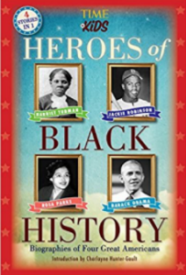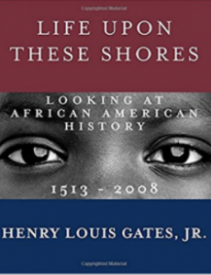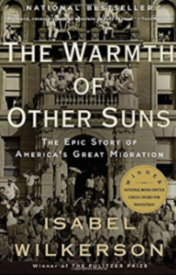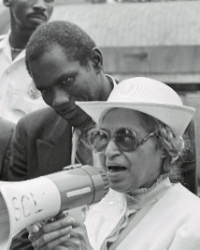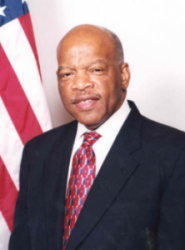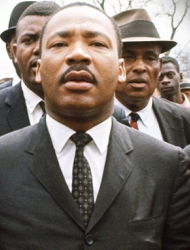Indeed, it’s vital to be intentional about all of history since African American history is simply American history. However, most texts, though well-meaning, don’t exhaust this rich subject. If you find that your homeschool history is not adequate, try supplementing with a unit study or additional text. Here are some tips on how to get start today.
African American History Study Guides
So, are you ready to make your study of Black history? Want it easy to create and pull together? Start here! Use these pre-made resources to make your study the best yet!
Integrating Black History Month Lesson Plans into Your Homeschool
Martin Luther King, Jr. Homeschool Unit Study
Free Martin Luther King Jr. Resource Guide
YAAHA (Yocum African American History Association): an online resource where families can obtain an array of educational materials free of charge. This resource dedicates itsself to sharing educational resources about Black American history
Yocum African American History Association: founded in 2015 by Sandra K. Yocum and Frances Presley Rice to demonstrate that black history is American history and to foster racial harmony.

African American History Books
Indeed, you can deepen the study of Black American history by using a good-quality text. Of course, some of our favorites are here but click through the link below to find a wide selection of books for various ages.
Additional Reading Resources
- Black Heroes: A Black History Book for Kids: 51 Inspiring People from Ancient Africa to Modern-Day U.S.A. by Arlisha Norwood
- Heroes in Black History: True Stories from the Lives of Christian Heroes by Dave and Neta Jackson
- The Great Book of Black Heroes: 30 Fearless and Inspirational Black Men and Women that Changed History by Bill O’Neill
- America’s Black Founders: Revolutionary Heroes & Early Leaders with 21 Activities by Nancy Sanders
- Black Inventors: 15 Inventions that Changed the World by Kathy Trusty
- The Story of Black History Box Set: Biography Books for New Readers by Rockridge Press
- Buffalo Soldiers: Heroes of the American West by Brynne Nicole Baker
African American Historical Leaders
Simply put, the impact that African American historical leaders and famous people have had on American culture and the world is immense. Indeed, some of our favorites we highlight here, but click through to discover many more amazing people who changed the course of history!
|
|
|
Additional African American Leaders of Note:
- Maya Angelou: Of course, as a poet and activist, Maya Angelou created some of the best poetry ever published. At eight years old, Angelou went through a very traumatic experience that resulted in her becoming mute (unable to speak) for five years. During that time, she memorized poetry and Shakespearean sonnets. With the help of a teacher and literature, she was able to speak again and when she did, she spoke about her traumatic childhood. She also expressed herself in her poetry and her literature, which won her many accolades, including three Grammy awards.
- Benjamin Banneker: Born in 1731, Benjamin Banneker was the son of two free ex-slaves. of course, since both of his parents were free, Benjamin was free as well. However, as a child, he was mostly self-taught. But he did attend a small Quaker school for a short time. Surprisingly, he taught himself the subject of astronomy and was able to accurately predict some solar and lunar eclipses. He is most famous for his almanacs, which he published for six straight years.
- Sojourner Truth: In 1797, Sojourner Truth – born as Isabella Baumfree – was born. Indeed, she would later come to be known as one of the most famous abolitionist speakers who ever lived. Although she was born into slavery, she managed to escape with her baby girl. Over the years, she fought not just for slaves to be free but also for women’s rights. Sojourner Truth was best known for her speech, “Ain’t I a Woman,” which she delivered in 1851 at the Ohio Women’s Rights Convention.
- Rosa Parks: Rosa Parks was a civil rights activist. Born in 1913, Rosa Parks was most notable for refusing to give up her seat to a white passenger. The bus was segregated, which means blacks were kept separate from the whites. Specifically, blacks were expected to take a seat in the back of the bus and leave the front seats for the whites. The driver of the bus she was on noticed that white people were standing, so he moved the “line” (that separated blacks from whites) back so Ms. Parks was now seated in the “whites” section. Ms. Parks refused to move and was arrested. As a result, the Montgomery Bus Boycott ensued and lasted 381 days.
- Harriet Tubman: Born in 1820, Harriet Tubman was a slave who sought to help her family and other slave members escape slavery by way of the Underground Railroad. The Underground Railroad was neither a railroad nor was it underground. Still, it served its purpose in helping slaves escape. Harriet Tubman risked her own life to help others escape through the Underground Railroad. Initially, she escaped with her brothers but they were scared of getting caught and being severely punished, so they returned to the plantation. Though she was sick at the time, Harriet knew this was her chance to escape, so she took the risk.
- Frederick Douglass: Frederick Douglass was born into slavery and became one of the smartest slaves of his time. At around age 12, the wife of a slaveholder taught him the alphabet and other basic things, despite slaves being forbidden from obtaining an education. As soon as the slaveholder found out, he forbade his wife from continuing their lessons. At that point, Frederick Douglass continued learning things from the white children he was around. As he grew older, he wanted to share his knowledge with other slaves, especially the Bible. He began to hold lessons on the New Testament for any interested slaves. In addition to fighting for slaves, Frederick Douglass was an avid fighter for women’s rights. As a result of his abolitionist efforts and fight for women to have the same rights as men, Douglass became the first African-American to be nominated as Vice President of the United States.
The Importance of Teaching African American History in Your Homeschool
Thousands of black leaders have embodied the most exemplary examples for children to emulate in every vocation imaginable. These leaders were successful despite segregation, Jim Crow Laws, and discrimination. Our children must know this history to understand who they are, what their ancestors have accomplished, and where they are going.
The public’s ignorance of the importance of black history is often the root cause of the lack of pressure on public schools to teach black history throughout the entire school year in American history. Teaching black history in one single month of February is a travesty against all students. It denies the in-depth knowledge needed to inspire, and it leaves much history undiscovered.
The significant contributions by black inventors in America are not widely known by many people. For example, simple everyday practical innovations such as the mop, dustpan, fountain pen, pencil sharpener, eggbeater, tricycle, ironing board, portable fire escape, golf tee, potato chips, or the bread-making machine made our daily lives better.
Dr. Lonnie Bunch, the Secretary of the Smithsonian, remarked, “It is very easy to be written out of history when you are not present…the erasure of our history and that erasure of that history creates the sense that for many African Americans that they have not done anything, they have not accomplished much, they have not transformed America.”
We make a more robust, enlightened American society by sharing black history with all students. In fact, we must be diligent that current agendas do not distort the understanding of the past. Indeed, we must teach that black history is American history.
African American Major Inventions
Did you know that African Americans are responsible for inventing many of the conveniences that we use every day? All of these inventions have revolutionized society and defined the characteristics of our daily lives. Not only are these developments vital today, but they are also important events in African-American history. These inventions will provide helpful homeschooling information!
10 African-American Inventions
- Potato Chips — George Crum, a chef, invented potato chips in Saratoga Springs, N.Y, in 1853. A guest at a restaurant sent French fries back to the kitchen for being too thick. So, Crum sliced the fries thinly and deep-fried them. As a result, CHIPS! Naturally, the chips became a huge hit with the guests.
- Crop Rotation Methods — invented by George Washington Carver. First, he created a system of rotating fields and crops to avoid depleting the soil’s nutrients. Carver also developed numerous uses for peanuts, sweet potatoes, and pecans. For example, peanuts in both oil and printer ink. Pecans can help pave roads and enrich soils.
- The Supersoaker — Lonnie G. Johnson invented the famous water gun: the Supersoaker. His prototype was the world’s first pressurized water gun. And the Supersoaker became the #1 selling toy in 1991!
- The Personal Computer — Mark Dean, Ph.D., worked with IBM to create the personal computer. With a doctorate in electrical engineering, Dean was a major part of IBM’s progress. He also invented the 1-Gigahertz chip, which has been revolutionary for modern-day technology.
- The Gas Mask — Garrett Morgan invented the gas mask in 1912. The product was used by police force and firefighters in World War I to save thousands of lives.
- Shoe Lasting Machine — invented by Jan Ernst Matzeliger in 1882. Before his machine, the tops of shoes had to be connected to the soles by hand. These workers, hand lasters, could work through about fifty pairs per day. With Matzeliger’s machine, production was increased to 150 – 700 pairs a day! The machine shoe laster revolutionized the shoe industry.
- Oil-dripping cups for trains — Elijah McCoy streamlined the workings of trains with his oil-dripping cups invention in 1872. The train had to stop frequently to oil the machinery before this invention. McCoy’s invention allowed for automation of the oil-dripping and consequently, created a more effective train experience.
- The Blood Bank — invented by Charles Richard Drew, M.D. in the 1930s. As a medical doctor and surgeon, Dr. Drew was uniquely qualified to invent a system of properly storing blood and blood plasma. He established the Red Cross blood collection and storage. Since then his process for storing blood as plasma has saved numerous lives.
- Laserphaco Probe — Patricia E. Bath, M.D. is the inventor of this cataract surgery tool and is also the first woman to acquire an ophthalmology residency program in the United States. In fact, they would remove cataracts with a mechanical grinder before this invention! Naturally, Dr. Bath’s invention helped make the surgery far more precise and delicate. This tool even restored the eyesight of people who had been blind from cataracts for over 30 years!
- Train-to-Station Communication System — developed by Granville T. Woods in 1887. Woods had worked with machinery since he was 10 years old. Indeed, he received 35 patents for various mechanical and transportation developments. Specifically, he invented the system of telegraphy to allow for sending and receiving messages from moving trains.
African American History Puzzles
Click here to download the Black History Printable Pack!
Test and expand your knowledge with these fun puzzles and People of Influence printables!
African American Culture: Facts to Know!
- Most African American culture has roots in West and Central Africa but blended over the years with American culture. Today, African American culture is distinctive, yet is a significant part of American culture.
- Oral Traditions pass on through narratives and stories written by prominent black authors. An example would be the heroic tales of John Henry.
- The Harlem Renaissance in the 1920s-30s played an important role in the public recognition of African-American music, literature, and art.
- The NAACP adopted “Lift Every Voice and Sing” (written in honor of President Lincoln) as the “Black National Anthem” in 1919.
- Throughout the 20th century, African American culture changed the face of popular music. Od course, several musical forms with origins in the African-American community such as jazz, ragtime, blues, swing, rock and roll, doo-wop, soul, rap, and R&B had transformed American popular music.
African American History Trivia
- Did you know that the “Lone Ranger” was based on the historical figure Bass Reeves? Indeed, a real Texas Marshall who had a Native American companion and rode a silver horse!
- In 1920 the world gained the first licensed female African American pilot, named Bessie Coleman.
- The earliest recorded protest against slavery was by the Quakers in 1688.
- A slave named Onesimus introduced inoculation to America. Indeed, Cotton Mather accepted Onesimus’ encouragement to take some of the smallpox infection and scratch it into the skin of healthy people to build up immunity to the pox. Only 2% of those who did this died from smallpox that year.
- Martin Luther King, Jr. improvised his “I Have a Dream” speech. In fact, while many black leaders had worked with him on his speech the night before, some reported that it never contained anything about a dream.
- Little known fact: Rosa Parks was not the first woman who to refuse to sit in the back of the bus. In fact, it was Claude Colvin. The feeling of indignation washed over Claudette Colvin as she studied Black leaders like Harriet Tubman, reminding her of the injustice of having to sit at the back of the bus. On March 2, 1955, 9 months before Rosa Parks, the police arrested Claudette and put her in jail for not moving to the back of the bus.
Quiz Yourself On African American History!
Quiz on the 1964 Freedom Summer
Test your knowledge of the civil rights movement and African American history with this quiz on the events of the 1964 Freedom Summer.
Create A Unique History Study with the Homeschool.com Marketplace!
So you want to build your History study? Visit the Homeschool.com Marketplace for budget-friendly products to help you put together a study based on your interests specifically for use in your homeschool!

